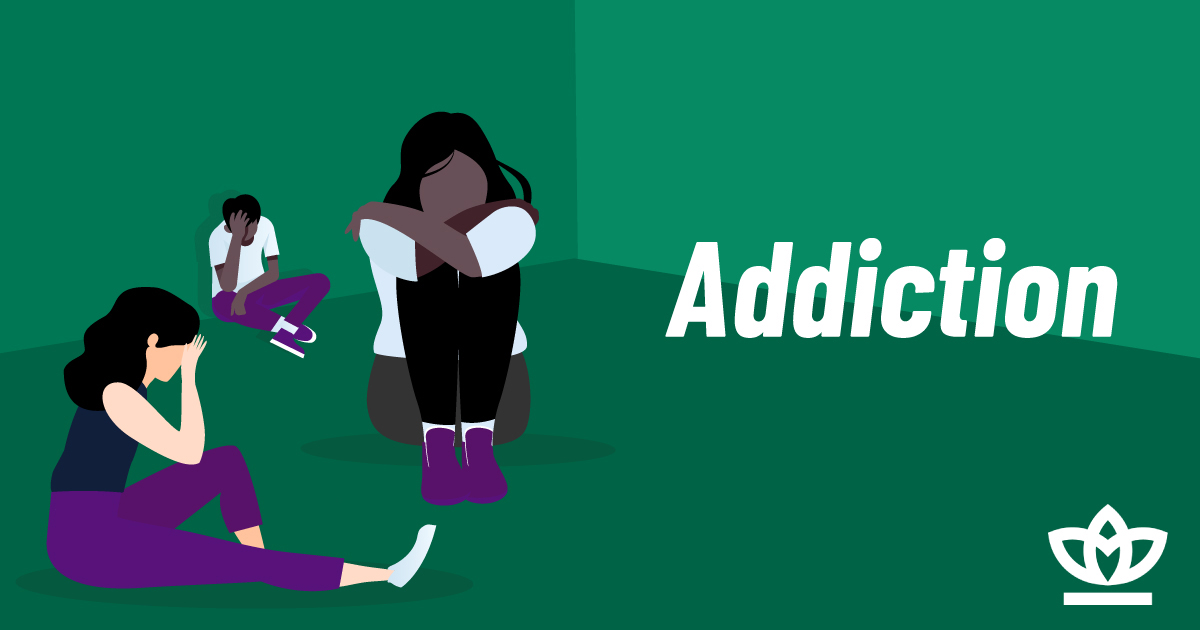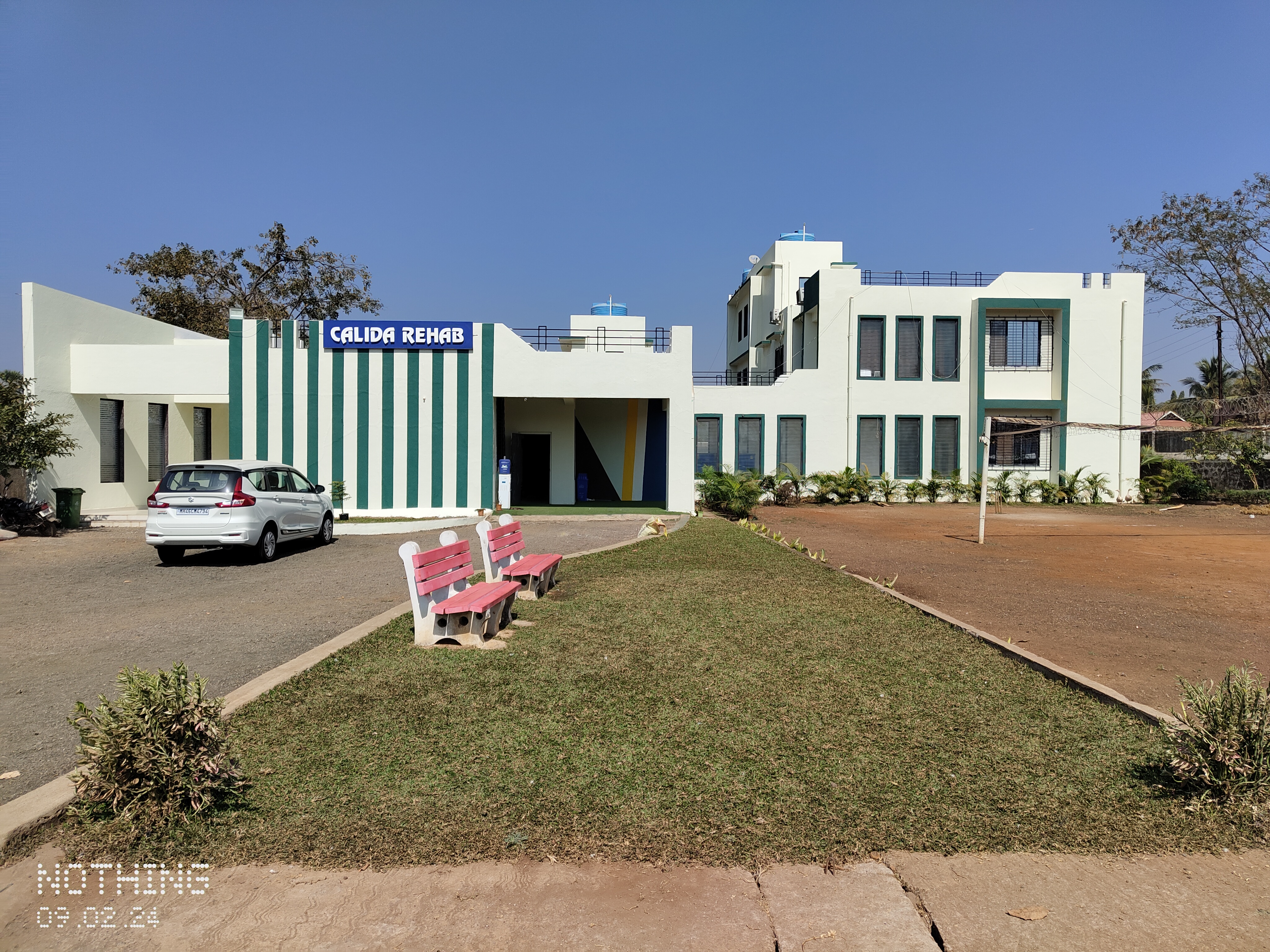What Is Addiction?

The following blog has been reviewed by an expert. For more information, please see our editorial policy.
‘Addiction’ is a term that we usually hear here and there. However, very few of us know the exact meaning of it.
It is a state when you’re unable to stop yourself physically and psychologically to engage in a specific behaviour, such as consuming any chemical, substance, or drug, even after knowing the harm of it on your body and life.
Simply, when your use of anything turns into a habit, and you’re unable to stop it even after knowing harms, it is called addiction.
Addiction mainly holds your brain, so does your actions and emotions. It affects you in several ways, such as psychological, emotional, and physical. Also, it is a disease, not a lifestyle like people usually thought about it.
Addiction is far more complicated than many realise. It’s a chronic, relapsing brain disease manifested by a craving for any substance or behaviour with the obsessive pursuit of that behaviour and lack of concern for damage.
In the long run, addiction can cause severe interference in your life and make it complicated to live healthily. Addiction typically grows in intensity, no matter if it is on a mild stage in starting. Over time, it may spoil everything from broken relationships and strained finances to permanent health complications.
Canadian doctor and philosopher Gabor Mate has studied addiction and finally concluded that addiction is, in its simplest term, a response to pain—a coping mechanism for traumatic events and circumstances. In his book In The Realm Of Hungry Ghosts, he says that the origin of all addictions starts from trauma and emotional loss.
Now, you may be wondering about—What is an addict? Who’s most likely to become addicted? What are the signs, causes, complications, withdrawal symptoms, or precautions against addiction? And so on …
Don’t worry, continue reading, one by one you will get the answers to your questions.
In this guide, you will learn about the following –
- Who is an addict?
- Types of addiction
- Signs and symptoms of addiction
- Causes of addiction
- Stages of addiction
- Complications and consequences of addiction
- Effects of addiction on brain
- Why does addiction get worse?
- Risk factors
- Withdrawal symptoms
- Treatment
- Prevention
So, let’s start with what is an addict? Or how you can know if someone has an addiction or not?
Who Is an Addict?
It’s not too complicated to know about this because, subconsciously, we all know what it is.
An addict is a human being whose life is controlled by a drug or substance, and s(he) struggles to stop even in the face of consequences.
Initially, taking a substance is a conscious choice; however, with continued use, it can get out of control and become severe. Researchers find substances can “hijack” the reward pathway, making a drug seem necessary to survival, like food. So, the person who is unable to stop using drugs and alcohol despite adverse effects is often labelled an addict. This whole thing together is known as addiction.
It’s important to note that various groups are trying to change these terms to be less shameful and more medical or scientific. Thus, an addict is a person who struggles with drugs, alcohol, or another compulsive behaviour, and an addiction is more accurately a disorder specific to the behaviour (e.g. alcohol use disorder).
Here is a shortlist of substances to which people usually develop an addiction:
- Marijuana
- Tobacco
- Cocaine
- Stimulants
- Opioids (e.g. prescription painkillers)
- Inhalants
- Hallucinogens
- Alcohol
- Sedatives, hypnotics
- Anxiolytics (e.g. benzodiazepines)
There are many more … let’s know about the types of addiction to understand the different kinds of addiction and substances to which people can develop a habit.
Types of Addiction
A single person may have two different types of addiction, such as alcohol and behavioural. So, it varies from person to person, even the level of the addiction differs too.
You can depend on alcohol, or another can depend on gambling, while patients can develop an addiction to a prescribed drug too.
There are many types of addiction which people go through in their life. However, the most common are these three: behavioural, alcohol, and drug addiction.
Behavioural Addiction
Behavioural addiction is a form of addiction, and sometimes also known as a process addiction. Being addicted to eating, shopping, pornography, technology, anything in day-to-day life is known as a behavioural addiction. It gets developed by psychological dependence on any activity to change one’s feelings.
Alcohol Addiction
Alcohol addiction is all about being addictive to different kinds of available alcohols. It has three different levels: mild, moderate, and severe. The severe is commonly known as ‘Alcoholism’ which means being unable to manage alcohol drinking habits.
If you have an alcohol problem, you may often feel unable to do anything in your day without drinking alcohol. It is a severe disease which can cause so much harm to your brain and neurochemistry.
Drug Addiction
In drug addiction, you won’t be able to resist the urge to use it even though you are aware of its side effects. It is not only limited to illegal drugs like heroin, but also includes legal ones, such as prescription drugs and nicotine.
It is a complex disease and quitting can be hard as drugs change the brain’s functionality and the body becomes used to the drug’s presence.
What Are the Signs and Symptoms of Addiction?
Now, you may be wondering how to know whether you or your loved one has any kind of addiction or not.
No worries, here is the list of common signs and symptoms of addiction. Check it out…
- Mood swings
- Memory problems
- Low self-esteem and growth as a person
- Depression or anxiety
- Secretive behaviour with people around you
- Being engaged with any kind of action or substance
- Losing interest in everything
- Lack of personal care
- Insomnia or other sleep problems
- No social gathering or activity
- Running away from responsibilities
- Relationship problems with family
- Avoiding situations
- Change in personality
- An extreme change in weight
- Seems unwell most of the time or tired
- Dilated pupils
- Extremely red colour eyes
- Eating disorder
- Financial instability
- Defensive nature
- No control over their activities
- Lost in own imaginary world
This list is so long as every drug, substance or alcohol addiction has different symptoms. Even it varies from person to person as well. But, these were some common symptoms which you can find in a person struggling with addiction.
What Causes Addiction?
There are many causes of addiction, but they get into these three main classes: biological, psychological, and environmental.
Let’s see them one by one…
Biological
Biological factors mean genetic factors (family history) or individual biology. Choosing a substance or drug to take is somewhat a personal decision. However, according to a review in the journal Behaviour Pharmacology, a person can be more likely to develop an addiction due to genetic makeup.
Yes, genetic composition can make you more likely to have a drug or alcohol problem. As per the research’s data, a person’s genes can contribute to differences in the dopamine system. These differences in dopamine, the chemical of feeling pleasure, can lead a person to get addicted more easily to psychoactive drugs or substances.
Psychological
Psychological causes relate to an individual’s mental health. People who have a mental disorder such as anxiety and depression are more likely to also have a drug or alcohol addiction.
People may start taking a prescription drug more than prescribed or drinking more alcohol to feel good or to escape and avoid uncomfortable moods. This motive for substance use can make their brain become dependent on drugs or alcohol, particularly in coping with mood swings or negative events. Some have described it as seeking to numb their feelings and pain.
Environmental
Environment, means your surroundings, like what kind of people are there around you, and with what kind of people you’re staying, hanging, partying, and sharing the essential part of your day or life.
People can build peer pressure on you to be someone you’re not in actual just to look cool or to become like one of them. They can be toxic to your life in many manners such as they can change you as a person which shouldn’t be appropriate to you.
Not only unhealthy friendships or professional environments but also poor parental care can affect you as a person and make you try substances or alcohol to get rid of reality for a few hours. Your mind can develop a habit to escape from these kinds of environments regularly, which can make you develop an addiction.
So, here you’ve been introduced to the common causes of addiction. Now, continue reading to learn about the stages of addiction.
Stages of Addiction
As per many rehabilitation counsellors, there are five main stages of addiction, although they vary from person to person.
Experimenting with drugs or alcohol
Experimentation is typically the first step where you try out the substance or drug in excitement. You can understand it by thinking about the first time smoking a cigarette or drinking a glass of alcohol. Another form of experimentation is to misuse prescription drugs.
Using drugs or drinking regularly
You may become a regular user of any substance or alcohol because of the pleasure you get after consuming it. You may like the relief a prescription drug provides and ask for more doses than prescribed by your doctor.
Starting to take risks
When you become a regular user, you may start taking risks to consuming drugs. In starting, you may do it on some days, but over time you may begin to consume drugs on an everyday basis.
It will create a risk to your life, hurting your physical health and relationships with loved ones. Your self-esteem will likely start going down, and you may begin to lose things which have been precious to you.
Becoming dependent
At this stage, you will likely start developing a tolerance to the substance and may want to use it every few hours or have to use more of the drug than before to get the same effect. Also, if you do not consume it, your body will start showing withdrawal symptoms because it now depends on the drug.
You may experience strong cravings for drugs or alcohol to feel pleasure and ignore other things. Over time it will become more intense, both psychologically and physically.
Having a Substance Use Disorder
In the last stage of addiction, you will develop a drug or alcohol disorder which means your body will not be able to function normally without it. You start losing your control on your behaviour to use those drugs abusively and compulsively.
Complications and Consequences of Addiction
Complications and consequences of addiction differ with every type of substance and drugs. However, below you can see a few common complications:
- Physical health problems (e.g. heart disease, kidney or liver problems, infectious diseases, sleep problems, malnutrition)
- Engaging in other risky behaviours (e.g. unprotected sex, sharing needles)
- Depression
- Suicidal thoughts
- Mental health disorders
- Relationship problems with loved ones
- Job loss
- Financial loss
- Death
How Does Your Brain Get Affected by Addiction?
Usually, your brain stimulates you to repeat the activities which make you feel good. It always targets your attention to something which releases the hormones that satisfy you in one way or another.
So, what happens when you get addicted to a drug or behaviour?
Using a mind- or mood-altering substance, or engaging in a mind- or mood-altering behaviour releases a chemical in your brain, called dopamine. Dopamine is responsible for triggering feelings of pleasure. This makes you repeat the behaviour, and doing it regularly for days or months may develop an addiction.
Your brain function starts changing and researchers believe the part of your brain responsible for rational decision-making gets diminished. This loss of control and compulsive use, in turn, affects your self-esteem, personal life, professional life, ability to grow as a person, and so forth.
In the long run, the addiction can make you seek out to try more substances and make it seem more impossible for you to control and leave it.
Why Does Addiction Get Worse?
Addiction typically gets worse over time. But, have you ever thought about it before, why does it grow worse?
In an effort to maintain balance (or equilibrium), the body adapts to the presence of the drug and the drug will have less effect. However, a person may continue to chase their first high and keep using in larger quantities. This is called tolerance, where one has to use higher amounts to achieve the same effect.
Also, due to the body’s response to ever-present drugs, when a person stops taking the drug, the body will likely suffer withdrawal symptoms as it takes time (days to weeks) for the body to adjust back to normal levels. So, a person will continue to use it to avoid the discomfort of withdrawal.
What Are the Risk Factors for Addiction?
Addiction is like cancer, where anyone can develop an addiction regardless of background or social status. However, here are a few common risk factors:
- Family history – includes alcohol or drug problems
- Early use – using drugs or alcohol at an early age
- Type of drug – using a highly addictive substance
- Way of consuming – especially smoking or injecting
- Mental health disorder – such as depression, anxiety or PTSD
- Lack of connection – such as family involvement
What Are the Withdrawal Symptoms?
The withdrawal symptoms of drugs differ based on the substance and the length of the addiction. Here are a few withdrawal symptoms of addiction:
- Headaches
- Dizziness
- Palpitations
- Muscle aches
- Sweating
- Anxiety
- Panic attacks
- Poor memory
- Insomnia
- Fatigue
- Short breathing
- Nausea
- Vomiting
- Seizures
- Mood swings
- Weight loss
Is Addiction Treatable?
People usually get confused that there is no treatment of addiction, but that’s not true because anyone can get help with any kind of addiction from a specialist.
Although medication can be used in helping treat addiction, various psychological therapies are the most commonly used and effective tools for helping addiction. One can learn how to manage the addiction and start to look for the causes of his/her addiction by consulting with the specialist of addiction treatment.
Prevention From Addiction
There are many preventive measures that you can take:
- Talk to a psychologist, if you feel the need to consume any substance
- Try to process your past traumas to get better mental health
- Ask for support from your family and friends
- Choose your environment carefully
- Be picky about people to be with
- Avoid getting curious and experimenting with harmful substances
- Go to programs to gain more knowledge to avoid addiction
When and Where to Look for Screening?
If you think you have an addiction and it causes you problems, then it means you need to look for help. The sooner you will contact a specialist, the better for your recovery.
Go to a mental health professional, like a psychiatrist, and ask for help to leave this addiction and stop using drugs or alcohol.
You may be thinking it’s not problematic, or you don’t need to see a doctor, but it’s not true. If you have an addiction to anything, then you must seek treatment. Your life depends on it. Go for the in-depth conversation about your addiction journey with the specialist.
















